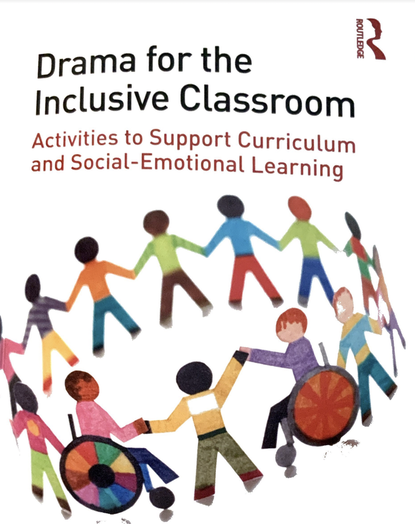Drama for the inclusive classroomActivities to support curriculum and social-emotional learning Chapter 1 Drama activities typically do not happen at a desk. they require an open space in which students can move about. Because many special education and some late-maturing neurotypical students lack the ability to manage their own bodies in space, behavior problems can appear when they get up from their desks. Chapter one: the structure for a drama lesson warm-up, activity, de-roling, discussion and closure is explained.
The improvisational games aren’t games in the sense of winning and losing and they aren’t about being funny. They are about being in the moment, they are about being totally present to each other onstage-being in play by Sheldon Patinkin(2000)
The Pygmalion effect If you believe someone you are teaching has the potential to succeed, you create a self-fulfilling prophecy for the. You kew who believed in you. Those people held a positive image of you in their hearts and in their mind’s eye. You felt safe with the. They encored you. Economic psychologist Paul J. Zak has discovered that when we show respect for each other, play together, and laugh together, we release oxytocin, a feel-good hormone, into our brain and body. It motivates us to expand our social network, make friends, and reach out to others in positive ways(Zak, 2012). A virtuous cycle is created in which oxytocin generates feelings of respect, trust and empathy. Those social experiences lead to cooperation, connection, and sharing, which, in turn, lead to more oxytocin and that leads to more…you get the picture(Zak, 2012). Allow the joy of working together on creative projects to weave a web of kindness throughout your classroom. Autonomy comes into play when students are doing drama because even in a collaborative game like Machines, everyone has their part to play to make the group successful. Positive attention and feelings of self-efficacy are created when students participate in improvisational scenes. Autonomy links into creating a more internal locus of control or belief in one’s ability to make changes effectively in one’s life(Norwicki, 2016) Meaning-making Drama as the perfect platform for allowing meaning-making to emerge. Students can share their meaningful metaphors with each other, revealing different representations and perspectives of the material they have been working together to understand. Digital media’s effect on executive functions Deficits in executive functioning are often found in students who have learning and neurological differences, but in the past 20 years dysfunctions have been discovered in neurotypical students as well. The cause is believed to be their growing use of digital devices. In 2017 common sense media reported that children between age group of zero to eight spent two and quarter hours per day on screens. The electronic media students interact with daily from iPads to smartphones and from the internet to ebooks take a toll on their ability to sustain attention and block out distractions, control their impulses, retain information, self-reflect, think critically, analyze, and use their imaginations. -traditional Tae-kwon do, yoga, mindfulness, and trying in theatre improve executive functions. Drama can be incorporated into the teaching of science, history, language, reading and even mathematics. They become more memorable for students by making them more concrete and comprehensible.
0 Comments
Leave a Reply. |
Myungja Anna KohArtist Categories
All
Archives
July 2024
|
Proudly powered by Weebly


 RSS Feed
RSS Feed